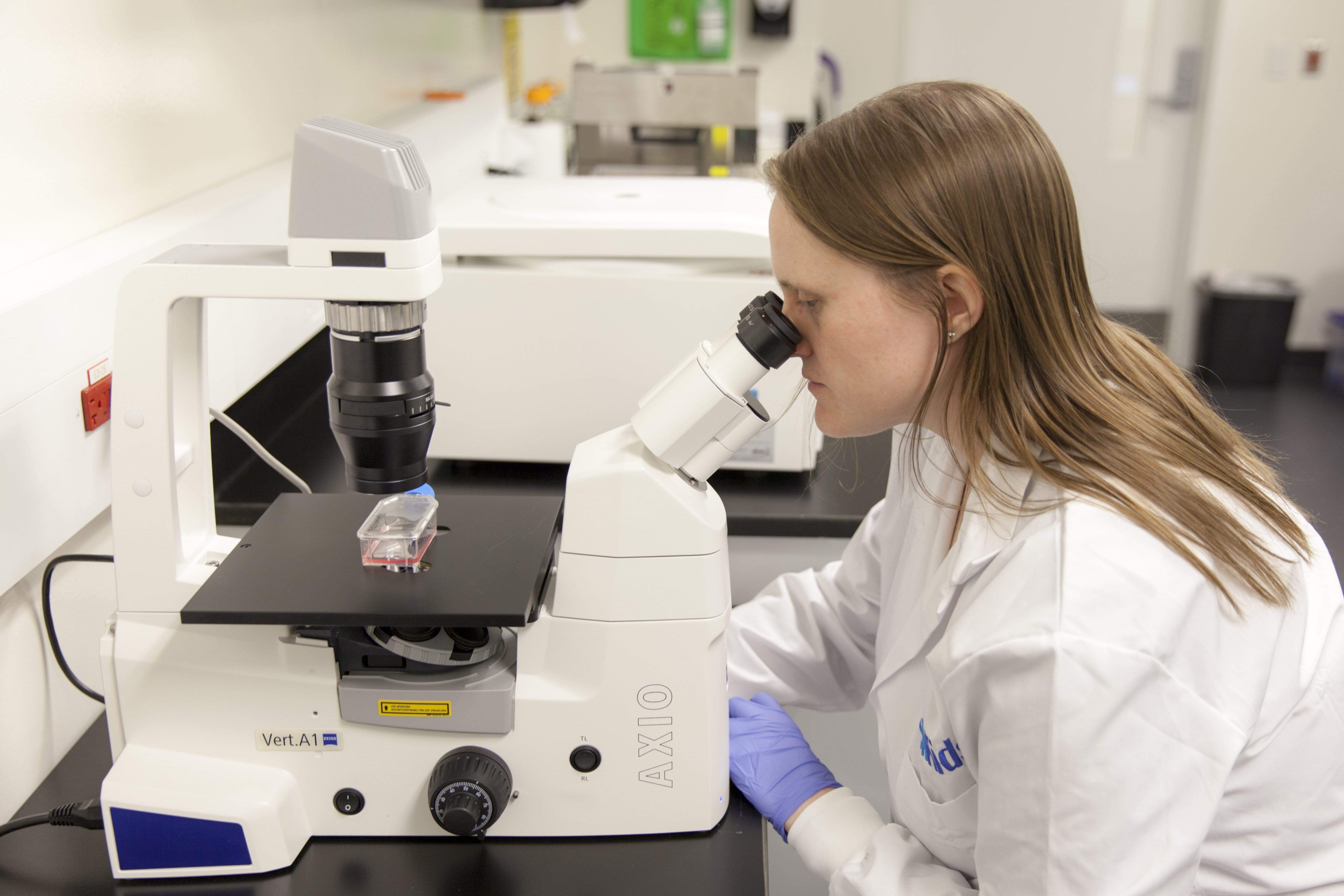
Women Who Inspire: Vicky Forster
Dr. Vicky Forster is a paediatric cancer researcher who was recently honoured on the Forbes' 30 under 30 Europe list in the 'Science and Healthcare' category, and is also a 2017 TEDGlobal fellow. For our Women Who Inspire series, she spoke with Shefaly Yogendra in London via email.
Svaha: How did you first get interested in science?
Vicky: I can’t remember a time that I wasn’t interested! When I was very young, I was definitely more interested in astronomy, space and physics. Probably because my parents both watched a lot of Star Trek and my dad is an engineer. I was obsessed with learning about the space shuttle program and the Apollo missions and secretly still want to be an astronaut. My love for biology and chemistry came a little later, but I’ve always been fascinated by science and the world around me.
Svaha: You have turned a personally difficult experience into a mission to help humankind. How did your journey develop?
Vicky: I was diagnosed with leukemia when I was seven years old and spent 2 and a half years in and out of hospital undergoing treatments and procedures. Although it was a difficult experience for my family and I, this is the time I really became fascinated in medical science. I asked the doctors a lot of questions about what was happening to me such as ‘why do I have to have that drug, what does it do, and why do I need to have blood transfusions?’ They were always wonderful at answering my questions at a level I could understand and I became fascinated with the biology of diseases, especially cancer.
I went to university and studied biomedical sciences, which gave me a broad overview of lots of topics such as genetics, biochemistry, physiology and neuroscience. After that, I heard about a PhD position in a great city called Newcastle which was in leukemia genetics, applied and was selected to do the PhD. Right now, I’m doing my dream job at The Hospital for Sick Children (SickKids) in Toronto, Canada working on lots of different types of childhood cancer. I sometimes reflect on how I managed to end up here in a great job, with a great team, on the other side of the Atlantic ocean to where I grew up. I don’t exactly know still, but I think it’s a combination of effort, passion and determination sprinkled with a lot of luck and quite a few wonderful people helping me out along the way.
Svaha: What are the toughest challenges that you overcame in your journey?
Vicky: Having cancer was obviously very tough, but I had so many incredible people helping me get through it, that strangely I have mainly good memories of my time in hospital and on the ward. My family, the medical team and support workers did an incredible job of getting me back to school afterwards and helping me lead as normal a life as possible. I played sports, had plenty of friends and did well at school.
I think the toughest challenges I have overcome were actually more recently. There was a period of time just after my PhD where I wasn’t very confident or happy with the research I was doing. I was very unmotivated and was wondering whether I truly had the skills and qualities needed to be a research scientist. Around that time, some pretty terrible things happened in my personal life too, and the combination of these things almost made me leave science. I just didn’t have any confidence in my ability as a scientist.
Thankfully, I bounced back with the help of friends and excellent mentors and decided to take a bit of a gamble on starting a research project which I’d been thinking about for years. It meant branching out on my own somewhat at a very early stage in my career, but I took the plunge, then found some incredible people to work with on this research project and it all worked out very well. Other than these experiences, it took quite a lot of determination and bravery to relocate to Canada, away from my close friends and family for my current job, but I haven’t regretted it for a second and am extremely happy here.
Svaha: What were some of the unexpected experiences you had in your journey?
Vicky: One of the best experiences I had was working at The Times in 2014. I had been awarded a British Science Association media fellowship, a scheme designed to give scientists some experience of science journalism/reporting and give journalists a link to scientists active in their fields. I thought I would be making the tea for the real journalists, trying to learn what I could and perhaps they would let me write something at the end of the experience. The reality was that I was writing from day one with the guidance of the science and health editors! It was an exhilarating experience seeing my articles published in one of the world’s most well-known newspapers, something I never thought I would experience but am very grateful for.
Svaha: You are not just a paediatric cancer researcher, but also honoured on the Forbes30under30 Europe list in the 'Science and Healthcare' category and a 2017 TEDGlobal Fellow. How do all these streams come together for your passion for meaningful science?
Vicky: I’m still a little bewildered by both things to be perfectly honest. I have always enjoyed TED talks and hoped to do one someday, but I never thought I would be given the opportunity so early on in my career. I’m an avid science communicator and also advocate for cancer survivors, particularly those who have survived childhood cancer. Both Forbes, and particularly TED gave me a worldwide platform to talk about these topics which are so incredibly important to me, and that I believe deserve more attention and consideration from everyone, not just those directly affected. Advocating for cancer survivors to have better aftercare and to influence and inspire research into late effects of treatment something that I’m really passionate about and was the topic of my TED talk in August 2017.
Science communication was originally something which I just started doing by myself several years ago. I’d always enjoyed writing and public speaking, so it seemed intuitive to talk about my science! For a long time I believed that my science was my career and my science communication was a ‘hobby’. I was even told by some people that I shouldn’t spend too much time communicating my science because it would take away from my actual research - well-meaning but potentially damaging comments, which I thankfully resisted and mainly ignored.
I never thought that my science and my science communication would collide so wonderfully and provide me with so many opportunities, but they certainly have. Now I don’t have to define myself as a scientist who does science communication as a hobby, I am both, at the same time and I am lucky to be incredibly supported by my colleagues and employer in this endeavour. Something which I am incredibly grateful for as it has not always been this way.
Svaha: You have accomplished so much already. What's next for you?
Vicky: It’s always strange to hear people say this. I feel that I am only just starting my career and work! I only finished my PhD in 2012, which is essentially the end of ‘formal’ training for a research scientist, albeit just the beginning for a career of learning. I’m incredibly excited about the work that I’m doing at SickKids at the moment. I’m part of an amazing team doing ground-breaking science and what we are doing truly is making a difference.
I’m also really excited to be a part of the TED Fellows community - we are 436 people from all over the world, in all different disciplines, doing innovative and new projects which have the potential to change the world for the better. I’m incredibly privileged to count many of them as my friends now and am looking forward to learning more about the other fellows and hopefully working together on some projects involving my interest.
Svaha: You are a truly inspiring woman. What advice would you give our young readers, who are interested in science and maths, and their parents and grandparents?
Vicky: One thing that I think many people overlook is that scientists are not just very good at science, they are all-rounders with many different talents and interests. If we look at the most prominent scientists in history, they are often incredibly creative, with equal passion for music or the arts. Scientists, and particularly mathematicians are wonderfully creative because we have to solve problems that nobody ever has before! We also have to be able to get on with people, work in teams and be great communicators.
So my piece of advice to aspiring scientists and those who foster their interest in science is to pursue a wide range of interests and realise that enjoying everything - from arts to sports to debating - is important for creating young scientists. The greatest breakthroughs in science are often made by people from different disciplines working together, and the more diverse our scientists are in their backgrounds and interests, the better for solving the biggest questions in science we face today.
Svaha: We thank you, Vicky, for making time to speak with us, on behalf of the readers of SvahaUSA. Your journey is awe inspiring and I especially think it will be of great interest to Sohum in his journey. His mum Jaya Iyer founded SvahaUSA.


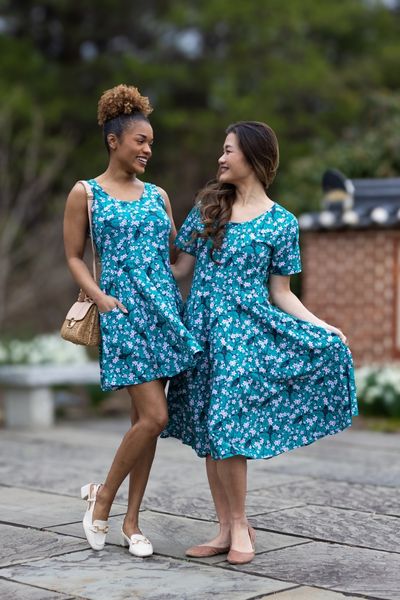
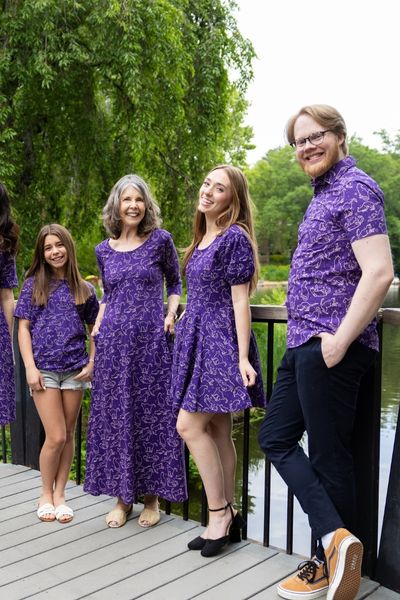













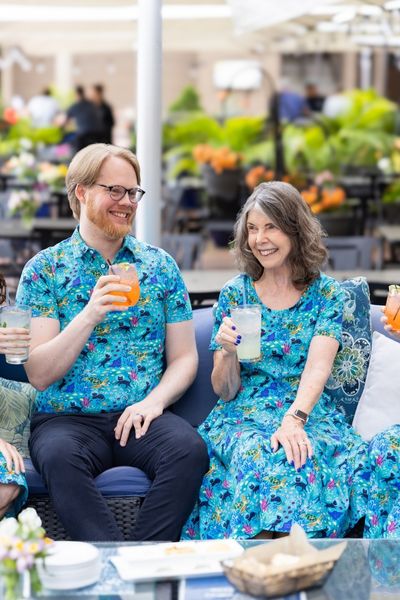
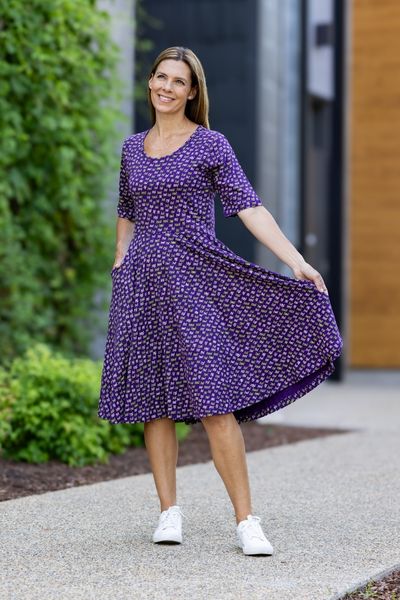

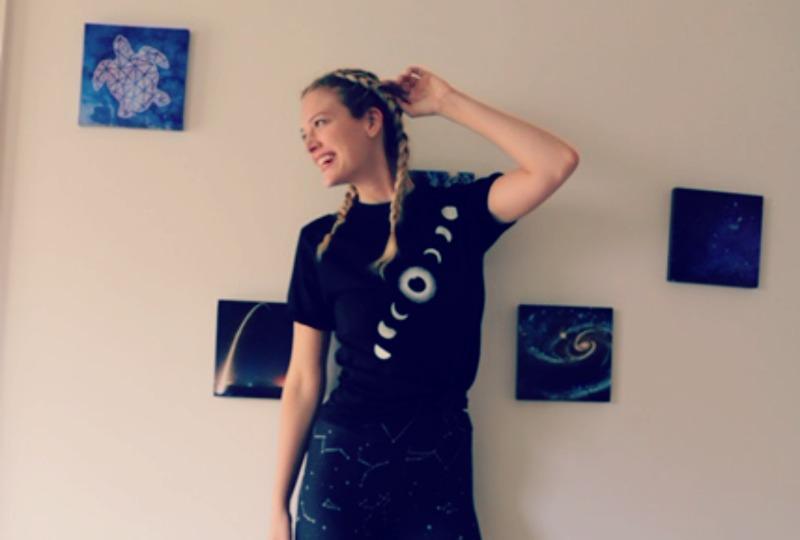
Leave a comment
This site is protected by hCaptcha and the hCaptcha Privacy Policy and Terms of Service apply.